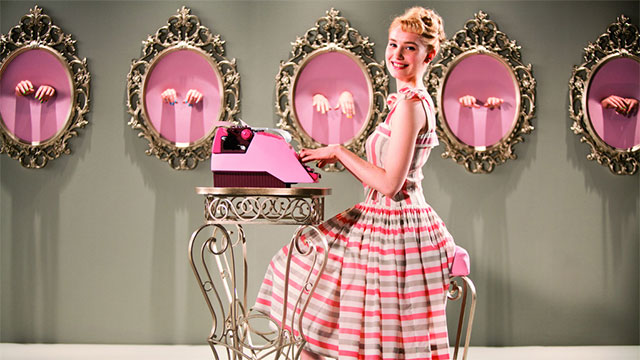Remember Mavis Beacon? I can hear the collective you asking "who's she?" "She" is the computer typing practice program that teachers used to try to pass off as a game during library hour. Yeah, we never quite bought it either. Remember "home keys?" I usually type these posts with two fingers on an iPad (or, in one pinch, my phone) and even on the off occasions where I'm not using a touch screen electronic, I still rely on the "hunt and peck" method to get my posts in so I clearly don't. Mavis and home keys were the first things I thought of when watching the new French comedy Populaire, a Mad Men era set film (as frothy and light as a whipped cake topping) set in the world of competitive typing. The world of what?
In the 1950s through the late '70s, France (and the rest of the world) would hold contests for local secretaries to determine which stenographer had the fastest fingers when it came to getting documents typed up with a minimum of error. Populaire is set in this bygone world, where secretarial work is a woman's only option career-wise, bosses can still liberally sexually harass employees (add to that this is a French film and the standards of office behavior would definitely not pass the mandatory group sensitivity training) and where the champions of these contests go on to become strange sort of stars, earning everything from endorsement deals to world records and all the standing that comes with both.
"It was like reality television," the film's director, Régis Roinsard, said in a recent interview with KQED Pop. "The contestants developed followings, fan bases. The women had very distinct performance styles and wardrobe choices."
Populaire (so named for the typewriter) tells the fictional story of one such contestant. Rose is a small town girl who moves to the big city drawn in by the bright lights and glamour of... office work. Seriously, remember it's the late '50s. Rose may be a little clumsy and not really that great a secretary but what she is is a great typist. Seeing this, her boss takes Rose under his wing and, with the precision he brought to his former career as an athlete, trains Rose to become one of the fastest sets of fingers in France and, eventually, the world.


